
Director of Photography
A film about the outstanding Latvian film director Juris Podnieks, who during his lifetime gained the fame of a fighter for justice and an "eye-opener". Podnieks has created testimonies about the most important events of the twentieth century in the post-Soviet territory. He always saw a bigger picture, it was not just Latvia what interested him. His ability to cover such a wide spectrum of themes - wars, lost freedom of his own country, the Soviet regime and its collapse, young people, artists. But most importantly, he was always focusing on the human soul. Juris creates an emotional bond between the author and his characters, the characters and the viewer - he was talking to each individual. Perhaps this is why his films made such an effect on the viewer. Juris Podnieks has clearly been able to influence millions of viewers with his films. Juris himself died in the summer of 1992 in a diving accident. Did he manage to fulfill his mission in this life?
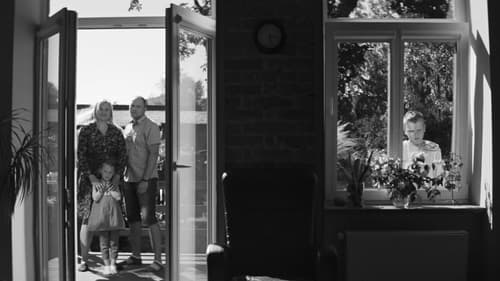
Director of Photography
The camera stands in a house, the lens pointing through the window, outdoors, where the occupants of the home are standing. They respond patiently to the camera operator’s directions: a small step to the left, a little bit forward, no, back just a bit, yes, that’s perfect. Dozens of people pose in this way for a full minute. There’s a man who lives alone, a large family, an older woman on a trampoline. Some are entirely at ease, others more self-conscious. Rabbits, dogs, and cats are allowed to join these portraits, too. All of them are captured within the natural frame of the windows, along with the lace or floral curtains.
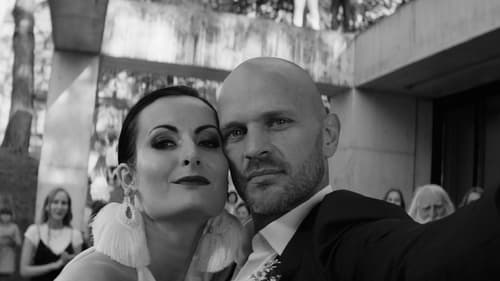
Camera Operator
A CrossFit trainer becomes the father of a baby girl, Snow White. Snow White’s mother dies, and her father marries a young woman obsessed with CrossFit and herself. She works out all the time in order to be the best. And she really is the best – she can do 50 burpees. In the meantime, little Snow White plays and grows up in the CrossFit gym. Time passes, and one day it turns out – while the Stepmother can do 50 burpees, Snow White can already do 53 burpees...

Director of Photography
The First Bridge is a film about frontiers, barriers, the ways to cross over and see what goes on, on the other side. But it also a film about time, as it was shot on Kodak Negative Films acquired in the year 1997 and discovered intact in 2018.

Cinematography
A Latvian tragicomedy about a young artist who bears witness to the dramatic political upheavals of the WWII era. As brutal regimes come and go, his country, his village, his people, and even his heart are swept up in the inexorable currents of history.

Director of Photography
A film about a plastic spoon and a society that has reached a high level of development – oil is being retrieved from subterranean depths, transported to processing plants, turned into plastic, transported to another plant, where it acquires the shape of a spoon, transported to convenience stores, where we buy it, and is then soon tossed into the trash. In other words, this is a film about the efforts put into making a spoon that can be thrown away so effortlessly.
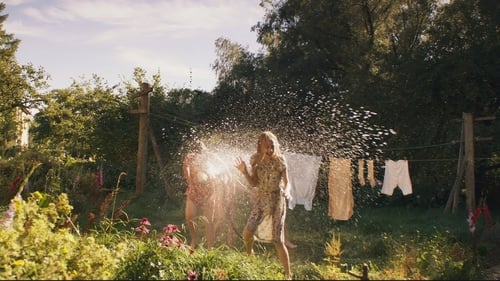
Director of Photography
Summer, 1989. City girls, Paula and Laura, spend their summer holidays in a small town with their cousins, Maija and Linda. Four girls, left unattended, enjoy freedom, imitate the life of adults, plunge into reckless adventures and get into trouble. Based on true events, nine-year-old Paula’s story of growing up is set against the background of time when Lat-via made her first steps towards independence.
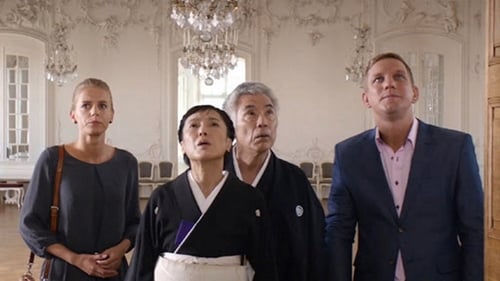
Director of Photography
“Magic Kimono” tells the story of middle-aged Japanese woman Keiko, who has been living in a shell for decades due to a family tragedy in Kobe. The modest act of eating and the sensations it gives us provided Keiko a lifeline to survive. Unwillingly, she joins a group of Japanese women traveling to Northern Europe to participate in a kimono show in the fairytale-like art nouveau world of Riga. During her performance, Keiko suddenly comes face to face with her husband, who disappeared twenty years ago and now wants to read-dress their relationship and who Keiko has become.

Camera Operator
A person’s face and eyes preserve experience better than any document or recorded memoir. Particularly if a person has experienced as much as the well-known dissident Lidija Lasmane-Doroņina. Actually, she does not even think of herself as a dissident. She received her three terms in prisons and labour camps – fourteen years in all – as punishment not for underground struggle but for daring to remain true to her principles, convictions and faith. The ideals Lidija obtained as a child – the idyllic image of Latvia as an independent country, strong family values and faith in God as a moral measuring stick for any action. Her eyes are bright even today, at the age of 91, and they look at this world full of life.
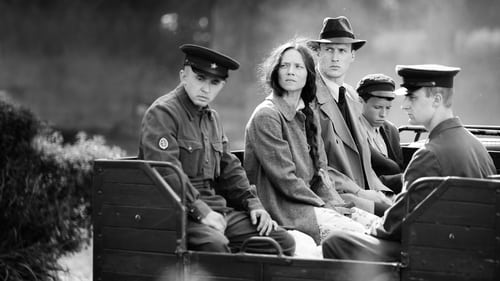
Director of Photography
The 14th of June 1941, Soviet-occupied Latvia: Without warning, the authorities break into the house of Melanie and her husband Aleksandr and force them to leave everything behind. Together with more than 15 000 Latvians, Melanie and her son get deported to Siberia. In her fight against cold, famine and cruelty, she only gains new strength through the letters she writes to Aleksandr, full of hope for a free Latvia and a better tomorrow.
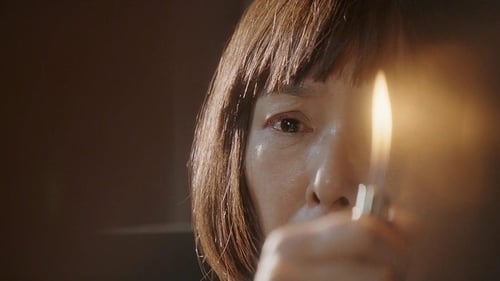
Director of Photography
アメリカでクリニックに勤める精神科医の真田。
ある日、家族とショッピングに出かけた際に一人の女性とエレベーターで遭遇する。
彼女の声が脳裏に響き渡り、真田は彼女とクリニックで問診している様を妄想する。
しかし彼女の話は、真田の想像を超える、壮絶なものだった。
幼い頃に家が火事になり両親を亡くし、学校ではイジメを受け、結婚相手からは浮気をされる。離婚してからは、アメリカで売春をしながら借金生活で過ごす毎日。
彼女の話を聞く内に、次々に登場する男と自分を重ね合わせ、彼女の話に引き込まれていく真田。彼女の話はさらにエスカレートして行き、思いもよらない方向へと向かっていく…。
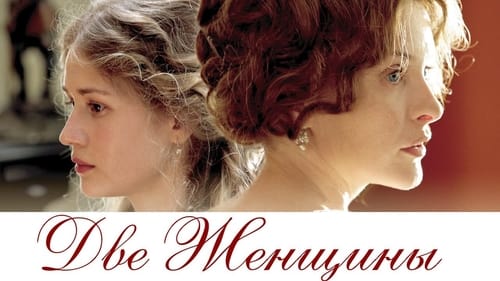
Director of Photography
A headstrong young woman is married to land baron. Her feelings for her son's tutor becomes a complex web of unrequited love.

Director of Photography
A story about a city built as a paradise but turned into hell – a city slowly turning into paradise again, just in a different way. Igor has been living in the Chernobyl Zone for almost ten years, for peace and a chance to escape modern civilization. Psychological issues, both personal and global, are still troubling him, and he embodies both harmonizing peace and supernatural stress. And an existential secret – the secret of the essence of life. He is surrounded by the elderly inhabitants of Chernobyl, living in villages entirely overcome by nature. They lead their unrealistic Atlantean lives, from which even war in Ukraine seems to be happening on another planet.

Director of Photography
Latgale is a land on the very eastern edge of the European Union. Sometimes it seems like a land in the middle of a body of water. At other times, it seems a desert with the ark of rescued humanity all covered by sand. The film presents a land that is made by people, spiritual and physical extremes of living and thoroughly Christian resurrection.

Director of Photography
Adam’s first wife Lilith is mentioned in the ancient Oriental legends, in Talmud and in the medieval books of Cabala. According to these sources, she was not created from Adam's rib like Eve but from clay like he himself. Nevertheless Lilith was not recognised by Adam as his equal and left him after a quarrel heading for Babylon. She has no soul, and she is immortal. Lilith assumes different names, can change her appearance, and takes possession of men against their will. Once it's accomplished, she leaves her victims forever, marking them for either spiritual, or physical death. Whatever she does it is neither Good nor Evil. She is made of an altogether different matter. Inspired by the works of French writer Anatole France, Yevgeny Pashkevich‘s GULF STREAM UNDER THE ICEBERG consists of three dramatically interwoven stories with the immortal Lilith stalking through time and space with her demonic mission.

Director of Photography
One week in one of the most exotic and picturesque cities of the world. The day of changes comes when Amaya meets a charming Englishman, Paul and it dramatically changes Amaya's perception of her cultural and personal identity.

Director of Photography
A creative a portrait of Latvian luger and Olympic medal winner, Martins Rubenis, who won the first Latvia's Winter Olympic medal of the games in Turin in 2006. Apart from his success in sports, in the circles of contemporary alternative culture he is known as DJ Betons from the association Varka Kru (Varka – from Russian "boiling", Kru – from English "crew"). Like the medieval knight Lohengrin, Martins Rubenis arrives in his luge to fight a battle - with an adversary, with himself, with time and the world.

Director of Photography
There should be silence in a museum. And someone should see to it that the silence is there. It's the logical order of things. However, it might seem weird to somebody.

Camera Operator
A man in a grey coat roams the city. He is interested in boys and men. Those good enough for him will get a green bag. Marija is home alone. She is the only woman to get a green bag. But the film does not end quite there.

Director of Photography
A mentally ill young woman Valda convinces herself that a boy growing up in an orphanage is her child. Following the footsteps of a thousands Lithuanians, she immigrates to Ireland to earn money to save him. "Loss" portrays the beauty and tragedy of the human heart.

Director of Photography
17-year-old Ria is a sensitive and mysterious young woman. Ria's mother has suffered in a car accident and has stopped speaking since her daughter's birth. The family grows deer for sale, yet, the business is not successful. To earn some money, her father decides to organize a hunt.
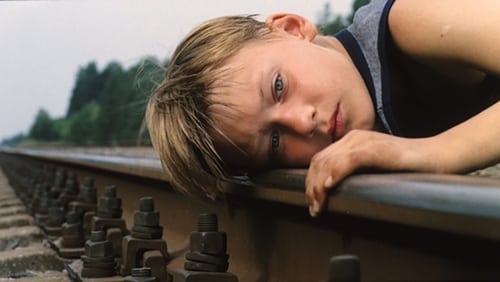
Director of Photography
Four directors capture simple, yet quintessential experiences of a single individual in different periods of his life - childhood, adolescence, adulthood and old age.

Director of Photography
Even before Marija was born it was clear that she would be a person getting in trouble all the time. However, that’s not all. The most important thing is that she is often alongside firemen. Is it because things around her catch fire?

Director of Photography
Maria decides to go for a swim in the pool even though it looks deserted and she’s warned that the water is cold. When she gets into the pool she is faced with not only the frigid water, but with her other feelings as well. Like fear.

Director of Photography
In the near future of 2012, the government asks for each citizen to have 30 Lats on their credit card. Anybody not having this amount of money is deemed to be maliciously poor and arrested.

Director of Photography
Viesturs Kairišs’ 2004 documentary The Monument investigates the interpretation of Riga’s Soviet Second World War memorial in the post-Soviet era. The "Victory Monument" was established by the Soviets to celebrate freeing Latvia from Nazi Germany. However, for Latvians, this didn't mean "freedom", it meant the beginning of another occupation of their country - this time, by Soviet Union.
Included in the collection "Europe's old new faces : Ten countries, ten young directors. Ten stories about monuments situated somewhere between yesterday and tomorrow".

Director of Photography
An emotional and stylistically consistent documentary musical depicting the staging of Bernstein’s West Side Story with deaf youths. The dramatic material is intertwined with life and the emotional scenes of the musical; it creates a distinctive choreography, which is a statement of the deaf people’s craving to love this world and to be open. Reciting to music, which is the way of singing of the deaf, is the strongest and most unexpected witness of the realities of their world.

Director of Photography
An absurdist farce centering around a school in post-Soviet Latvia. After a rather disgusting prank (someone defecates in the school attic), the tyrannical headmistress deems that no one can leave until the culprit is caught. When the photographer's pet python escapes, havok breaks loose.

Director of Photography
It is what it is. One needs a reason to get a passer-by to stop in their tracks and stand in front of the camera for a while. In this case the reason was - Mozart.

Director of Photography
A historical drama about an attempt to steal the entire Latvian national wealth deposited abroad by Wilhelms Munters, the Latvian Foreign Minister in the forties.

Director of Photography
Every night, Soviet tractors comb the coast of Latvia looking for signs of anyone who could have infiltrated the Soviet border from the sea. One morning, three Soviet patrolmen discover a woman’s shoe in the sand and footsteps leading to the quaint little village of Liepaja.

Director of Photography
An omnibus film consisting of ten parts, each directed by a different young director from the Latvian Academy of Culture. The unifying element of the ten shorts is the place where they take place - the airport. A lot can happen there - including a strike by a comet, a malicious attempt to break havoc by passengers, or an exploration of the old airport guard's house where not a lot has changed since the collapse of the Soviet Union. The film consists of the following parts: A Mishap (Nediena) by Arta Biseniece, Blurp (Šļurp) by Aija Bley, Alien Sky (Svešās debesis) by Viesturs Kairišs, 5 Versions (5 versijas) by Dzintars Krūmiņš, Comet (Komēta) by Māra Liniņa, Cleptomania (Kleptomānija) by Andis Mizišs, Alfredo's Poetry (Alfredo dzeja) by Igors Varenieks, Little Hand (Mazā roka) by Ilze Vidauska, Comet 2 (Komēta 2) by Anna Viduleja, and Life No. 2 (Dzīve nr.2) by Kristīne Želve.

Director of Photography
The oak tree in Seja is roughly 700 years old. Around this monumental tree, the peaceful and repetitive life goes on in the village, a group of houses in the middle of the forest. It is an almost unworldly existence in a condition of absolute simplicity where people are grateful for a hot cup of coffee and a good potato harvest.

Director of Photography

Director of Photography
The morning begins when the mail is delivered - this has been a tradition for almost an eternity. This film looks at daily things, daily movements, daily life and the daily routines of the postman, which are nevertheless meaningful to those who await and receive newspapers and letters.

Director of Photography
The ferry crosses the river, transporting people from one shore to the other, from one country to another. It runs year round, never stopping. The footage was filmed on the Latvian-Belarussian border in the early 1990s - a time when the Soviet Union began to crumble and Latvia regained its independence.

Director of Photography
Erik lives by night. He works in a nightclub and occasionally dresses up as a woman to rob rich clients. One day Erik's father arrives uninvited. It's a surprise visit that brings out memories of complicated childhood.

Director of Photography

Director of Photography

Director of Photography

Director of Photography

Director of Photography
A subdued observation of daily life in a children's hospital. The driver of a delivery van regularly delivers clean linen to the wards where small, tense dramas of life and death are played out.

Karlens
Children of Varnu Street whose fathers work in nearby factories face the "Tuliana Empire" - a group of boys, children of merchants from the nearby Lauku Street.




































